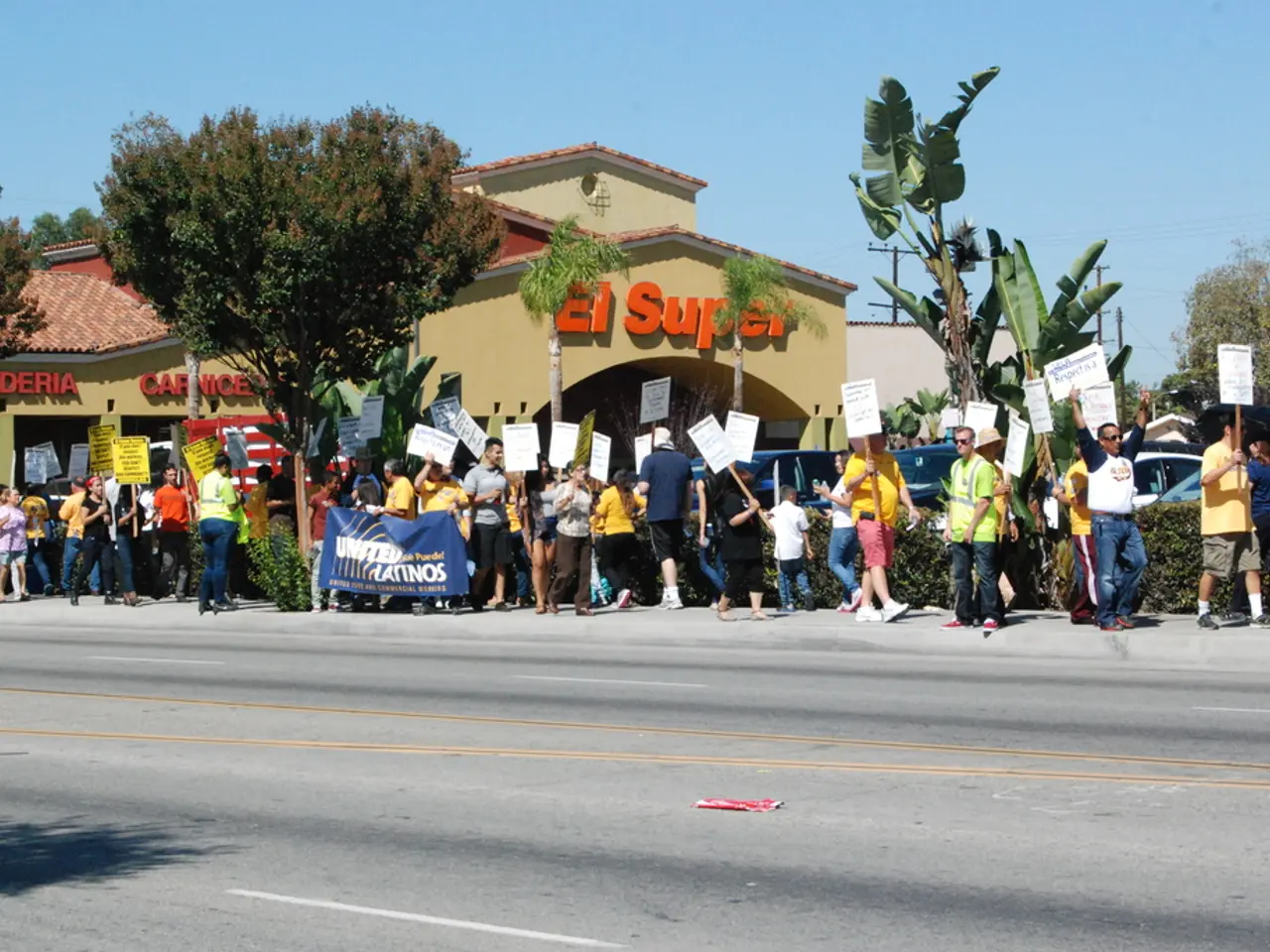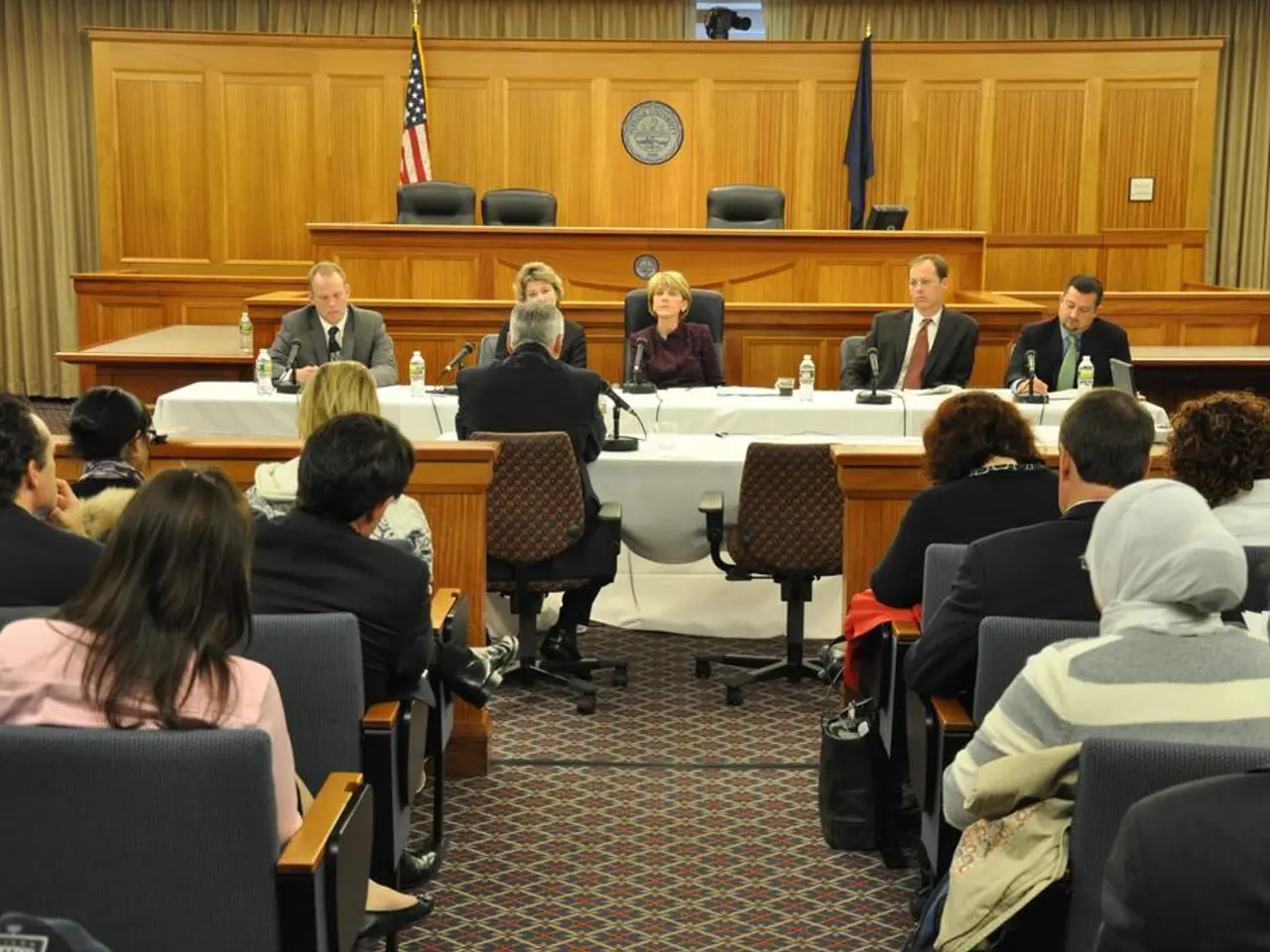Proposal requested for a directive on commission's initiative
Federal Chancellor Friedrich Merz is entering the summer break with a divided public opinion, according to a recent YouGov survey for the German Press Agency. The survey indicates that while Merz's party, the CDU/CSU, has seen some gains in polling numbers, the Chancellor's personal approval rating has taken a significant hit.
The public's perception of Merz's performance is currently mixed but trending toward dissatisfaction. Although Merz initially saw a rise in approval due to some effective foreign policy moves, his popularity has recently declined significantly. A Forsa Institute poll showed that only 38% of respondents were satisfied with the federal government's performance, while 58% expressed dissatisfaction. Merz’s own approval rating dropped from 42% to 35%, marking the lowest since he took office, with 59% now viewing his performance unfavorably.
Criticism appears particularly focused on the government's handling of key issues such as the electricity tax, which has sparked major political debate. A large segment of the public (65%) believes the government is failing to address Germany’s most pressing problems.
On the other hand, the CDU/CSU has seen some slight gains in polling numbers, rising to around 30%, while the Social Democrats continue to lose support. This suggests that despite the Chancellor’s personal approval slipping, his conservatives maintain relative strength compared to rival parties.
Regarding Merz’s claim of having "one of the best federal governments in recent decades," current public sentiment appears to contradict that assertion. The sizable share of dissatisfaction and a perception that the government is not effectively tackling urgent national challenges indicate skepticism toward this claim.
The survey also shows that the majority of respondents do not understand the decision to exclude private households from the electricity tax reduction. The electricity tax reduction will initially only apply to certain companies, agriculture, and not private households due to financial reasons.
Among supporters of the Union, satisfaction is greater, with 54% seeing an improvement in the country, 11% a deterioration, and 28% no change. However, even among supporters of the CDU and CSU, Merz's praise that this is one of the best governments in decades is not universally shared, with 44% agreeing (rather) and 41% not agreeing (rather).
The survey results suggest a close race between the Union and the AfD in the polls at the end of Merz’s term. 31% of respondents assume that the Union will be ahead of the AfD in the polls at the end of Merz's term, while 26% expect the AfD to be at the top. Another 26% expect the two parties to be roughly at the same level.
Finally, the survey also indicates that 32% of eligible voters believe that Germany has changed for the worse since Merz took office, while 22% perceive an improvement, and 37% see no change.
In summary, while Merz remains a significant political figure with some party strength, his government's overall performance is being viewed critically by a majority of the public, challenging his positive self-assessment. The survey results suggest a divided public opinion, with the Chancellor's personal approval rating on a downward trend, and the government's handling of key issues such as the electricity tax facing significant criticism.
Economic and social policy evaluations reveal a mixed public sentiment towards Chancellor Friedrich Merz's performance, trending towards dissatisfaction. This dissatisfaction is particularly evident in the government's handling of key issues like the electricity tax, which has sparked intense political debate.
The public's skepticism extends to Merz's claims of having one of the best federal governments in recent decades, as indicated by the survey showing a sizable share of dissatisfaction and a perception that the government is not effectively tackling urgent national challenges.





